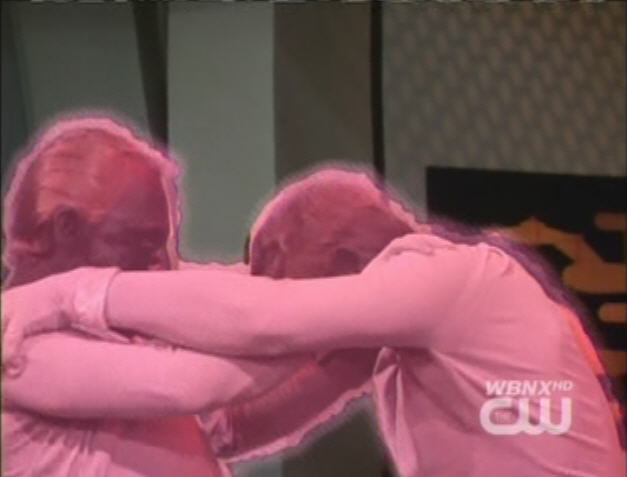The_Gneech
Explorer
This thread really exploded overnight.  So it's a little late for me to respond to this, but I don't want to have just "vanished," either.
So it's a little late for me to respond to this, but I don't want to have just "vanished," either. 
At this stage, I don't know how to answer this in a way it hasn't been already. Heck, the whole thread has been more or less on this topic. Much as I love to hear myself talk (or read my own text?) even I don't want to hear it again.
I'm willing to admit it might be there, and that I just haven't seen it. Really I am. It could be that if the game was stripped down to pure mechanics and all the other stuff that irritates me was out of the way, I could see it, but until there's some way to see the rules removed from their context, I'm not sure I can force myself to do the in-depth study it would require.
It wasn't other players, it's right there in the text. The fighter's job is to suck up damage. The ranger's job is to do damage. The warlord's job is to buff. And so on. Yes, those roles were implied in previous editions, but they were only implied and could be completely ignored without the "you're doing it wrong" vibe.
Maybe it's the writing in 4E I don't like?
If that's truly the case, it would help me feel better about the whole thing. I sure didn't get that impression in my attempts to read the PHB.
Again, it wasn't my group. I'm one of two people in my group even willing to look at 4E.
Considering that neither dragonborn nor warlocks were core elements before 4E, I don't think that's a very compelling answer. I don't object to the addition of dragonborn, tieflings, warlords, and warlocks to the toolbox, but I do object to the removal of gnomes, half-orcs, bards, and druids. And I'm certainly not happy about them being "sold separately!"
I don't object to the addition of dragonborn, tieflings, warlords, and warlocks to the toolbox, but I do object to the removal of gnomes, half-orcs, bards, and druids. And I'm certainly not happy about them being "sold separately!"
I'll re-read the multiclassing rules when I get the opportunity and see what I'm missing, then -- everything I saw suggested that multiclassing was "Here, you get one power from the other class, now don't bother us you weirdo."
-The Gneech
While not familiar enough with Saga to know what you are looking for - what 'unfashionable play style' do you feel 4E is somehow against?
At this stage, I don't know how to answer this in a way it hasn't been already. Heck, the whole thread has been more or less on this topic. Much as I love to hear myself talk (or read my own text?) even I don't want to hear it again.
I have found the 4E class building system to have a remarkable level of versatility and customizability. The opening of skill access and former class features via feats allows one to adapt to almost any character concept they might have.
I'm willing to admit it might be there, and that I just haven't seen it. Really I am. It could be that if the game was stripped down to pure mechanics and all the other stuff that irritates me was out of the way, I could see it, but until there's some way to see the rules removed from their context, I'm not sure I can force myself to do the in-depth study it would require.
You mention being frustrated that others forced your fighter to act as meat-shield - that is a group problem, not part of 4E.
It wasn't other players, it's right there in the text. The fighter's job is to suck up damage. The ranger's job is to do damage. The warlord's job is to buff. And so on. Yes, those roles were implied in previous editions, but they were only implied and could be completely ignored without the "you're doing it wrong" vibe.
Maybe it's the writing in 4E I don't like?
Each class can generally fit into several roles, even if they have some specific ones they default to. Fighters are Defenders with a bit of Striker, and can just as easily be heavy-hitting warriors as meat-shields. If you want to play a Fighter as a damage-dealing machine, the system is more than ok with that
If that's truly the case, it would help me feel better about the whole thing. I sure didn't get that impression in my attempts to read the PHB.
the only thing standing in your way, apparently, is the group you play with.
Again, it wasn't my group. I'm one of two people in my group even willing to look at 4E.
Only in the same way that 3.0 was bad for roleplaying because you couldn't play a Dragonborn Warlord/Warlock.
Considering that neither dragonborn nor warlocks were core elements before 4E, I don't think that's a very compelling answer.
And that, at least on this topic, feels like the important thing to me. The core multiclassing rules for 4E seem better suited to building character concepts than in 3rd Edition.
I'll re-read the multiclassing rules when I get the opportunity and see what I'm missing, then -- everything I saw suggested that multiclassing was "Here, you get one power from the other class, now don't bother us you weirdo."
-The Gneech










